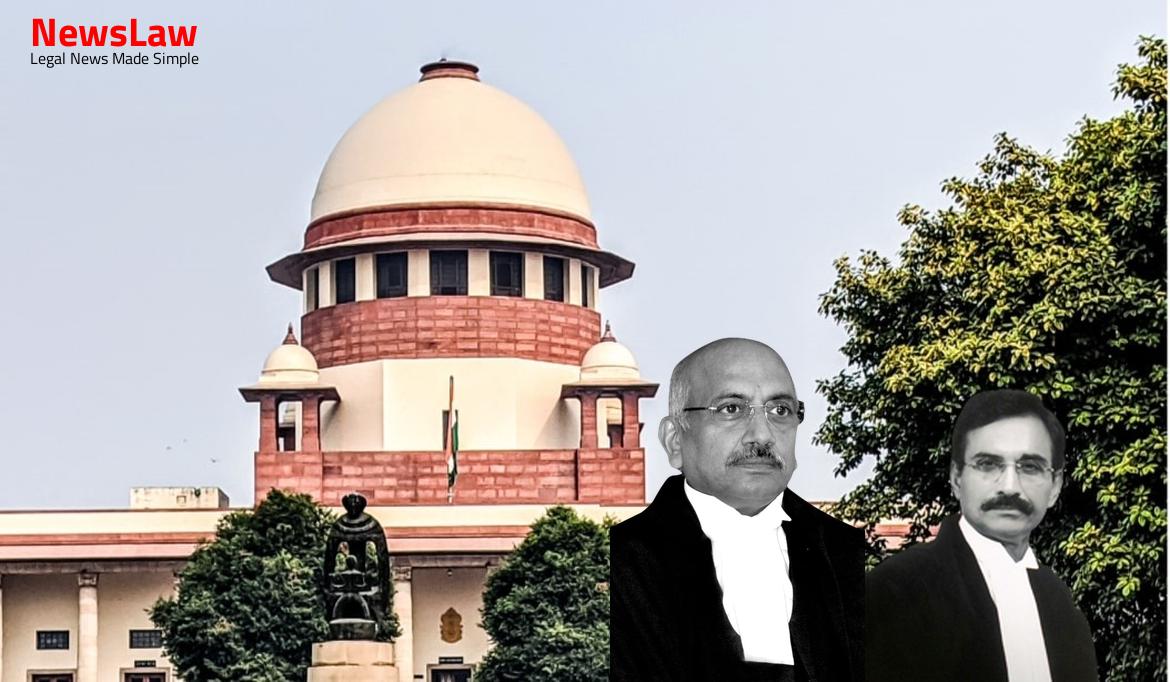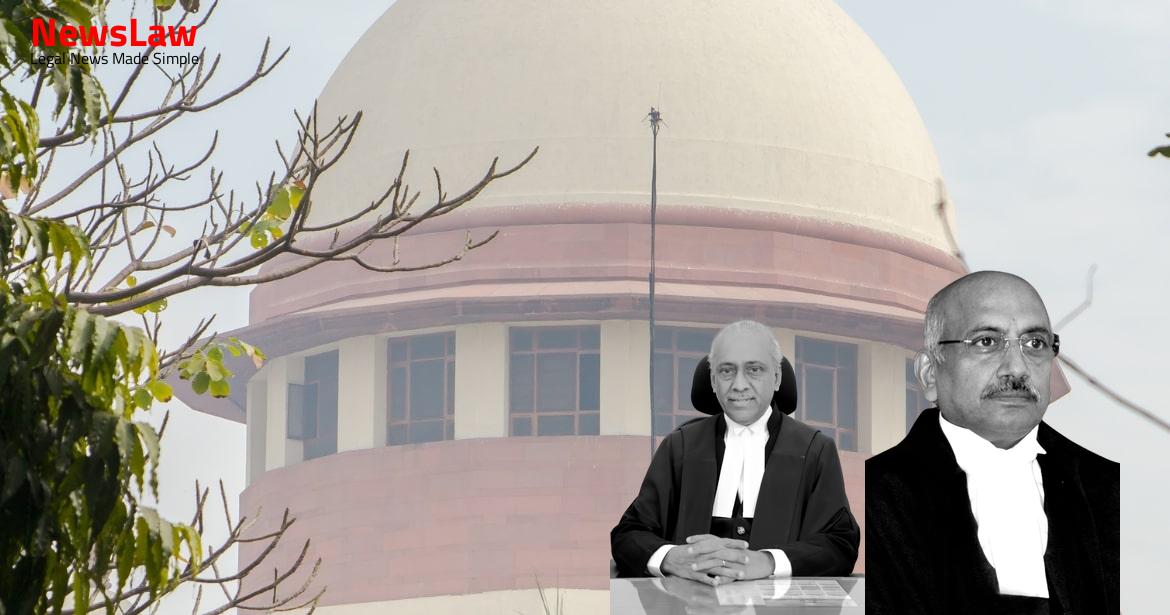Delve into the legal intricacies of interference in bank guarantee cases with a recent court ruling emphasizing the independence of such contracts. The court’s analysis highlights the need for clear evidence of egregious fraud before intervention is permissible. Stay informed about the nuances of this legal issue and the recent developments in the judicial decision. #LegalAnalysis #BankGuarantee #CourtRuling
Facts
- The suit filed for a decree of permanent injunction against encashment of bank guarantee resulted in a dismissal order on 8.11.2019.
- A report was requested due to the mockery made of the proceedings for stay of encashment of bank guarantee, which was received on 4.12.2019.
- An application under Order 41 Rule 27 CPC was made by the respondent based on alleged fraudulent actions by the appellant.
- The court directed the disposal of the appeal within three months from 24.1.2020 on 6.1.2020.
- Respondent No.1 sought admission of a report of expert opinion dated 4.12.2019 under Section 45 of the Evidence Act through an application under Order 41 Rule 27 CPC.
- Their request to place some documents of the appellant for signature comparison was denied by the learned ADJ, Khurda on 18.02.2020.
- Respondent No.1 filed an appeal against the denial on 12.3.2020, and proceedings were stayed as per the order dated 16.03.2020.
- This information was brought before the court on 27.10.2020.
- The High Court vacated the stay on 2.11.2020 as they were not made aware of the order dated 6.1.2020.
- Judgment dated 4.11.2020 set aside the order dated 18.2.2020 of the learned ADJ and remitted the matter back for reconsideration.
- On 18.11.2019, an interim order was passed by the appellate court restraining the release of payment of bank guarantee.
- This order was confirmed on 19.11.2020.
Also Read: Supreme Court Judgment on Single Till Mechanism for HRAB Calculation: A Comprehensive Analysis
Arguments
- Learned counsel for respondent No.1 admits that the signatures of the officers of the appellant on documents differ from the signatures on the vakalatnama or other documents.
- The purpose was to imply fraudulent behavior by the appellants in a separate matter.
Analysis
- Bank guarantees are considered independent contracts with limited scope for interference during encashment.
- Interference in bank guarantee cases may be permissible in cases of egregious fraud related to the guarantee.
- The argument of respondent No.1 is deemed fallacious in this case.
- A handwriting expert’s opinion was sought to compare signatures on different documents for verification.
- The issue relating to the signatures of the representatives of the appellant is not denied.
- The respondent No.1 is making efforts to prolong the issue and prevent the encashment of the bank guarantee.
- The impugned order is set aside and the appeal filed by respondent No.1 is dismissed by the High Court against the order of the first appellate court rejecting their application for production of additional documents.
Also Read: Selection and Appointment of Judicial Officers in Himachal Pradesh
Decision
- Leave granted.
Case Title: ATLANTA INFRASTRUCTURE LTD. (RECHRISTENED AS ATLANTA LTD.) Vs. DELTA MARINE COMPANY (2021 INSC 338)
Case Number: C.A. No.-002876-002876 / 2021



